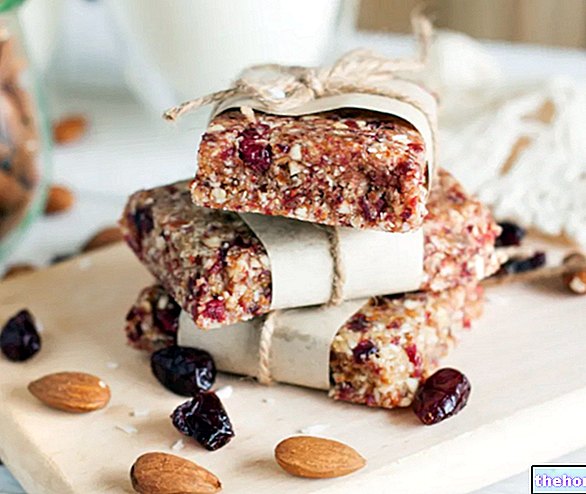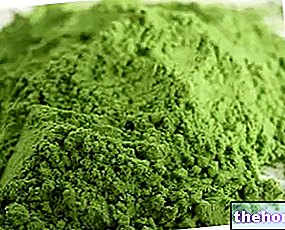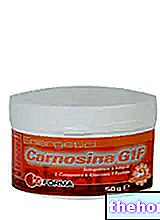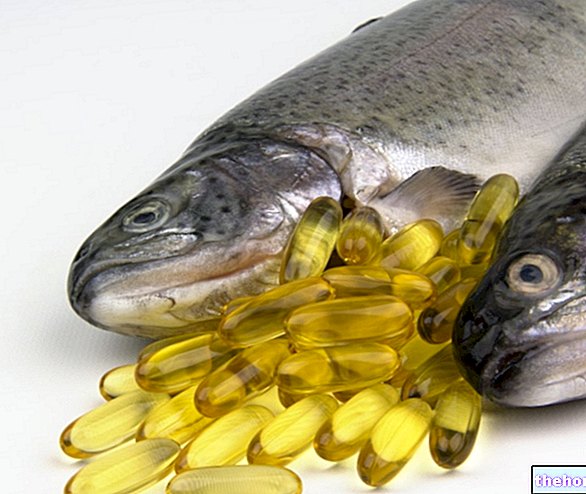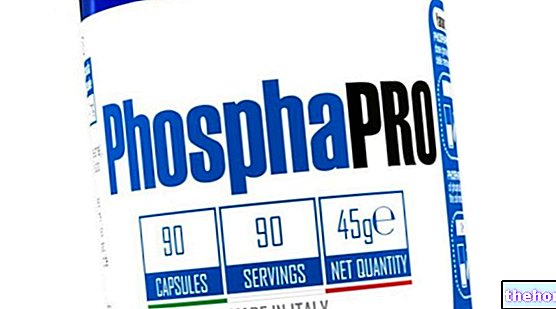
Information on Caffeine and Taurine - Biotech USA
Power force - Biotech USA
Food supplement based on L-Taurine and caffeine
FORMAT
Container of 60 capsules
COMPOSITION
L-Taurine
Anhydrous caffeine
Gelatin
Per daily dose ½ tablet
L-taurine 368 mg
Anhydrous caffeine 40 mg
Product features Caffeine and Taurine - Biotech USA
L-Taurine- commonly considered a conditionally essential amino acid, it is produced following the oxidation and decarboxylation of sulfur amino acids, such as methionine and cysteine. The amount produced in a healthy and well-fed individual is estimated to be a maximum of 400 mg / day,

Despite the numerous biological functions, this molecule has not found a specific sector of application, and several studies - many of which are still in the experimental phase - are evaluating its effectiveness in the treatment of epilepsy, neurodegenerative diseases, growth disorders, cardiovascular pathologies, in alcoholism, in liver diseases and in diabetic pathology (role somewhat discussed)
In recent years, experimentation has also begun in the sports field, with mixed results. One of the main reasons why taurine is used is the alleged energizing effect, which however has not been demonstrated, while the antioxidant effect is underestimated. Taurine has in fact proved effective in counteracting the oxidative damage induced by physical exercise. intense, resulting in improved athletic performance.
In addition to athletes, for whom a decrease in taurine muscle pull was recorded following physical exercise, with a relative increase in urinary excretion, supplementation could also be useful in vegans, given the low source of finite taurine (present mainly in products of animal origin).

Caffeine - Caffeine is a substance belonging to the genus of methylxanthines. It is generally introduced into the common diet through coffee (a cup contains around 100mg) but also with cocoa and tea. After intake, caffeine is rapidly absorbed with a plasma peak around 120 "and with a very short half-life, from 2 to 4 hours. Rapidly distributed to various tissues and metabolized in the liver into various dimethylxanthines, caffeine is in degree of:
Stimulate lipolysis by increasing the blood concentration of fatty acids;
Mediate muscle vasodilation;
Release the bronchial muscles and facilitate breathing;
Improve cognitive abilities, and the state of alertness;
Increase diuresis;
Reduce the sensation of pain by limiting the activation of nociceptors;
To these effects, mediated mainly by the metabolites of caffeine, the most important is added, with the release of adrenaline and consequent increase in heartbeat, vasodilation in the muscles and vital organs, increase in second messengers such as AMPc and activation of cascades of intracellular signals, necessary for the proper functioning of the cell.
In sports, the use of caffeine has proved effective in:
- Improving performance in terms of endurance and strength: properties certainly due to the saving of muscle glycogen, in favor of the lipid one, and probably to a better influx of calcium into the skeletal muscle with consequent facilitated contraction, as well as to the muscular vasodilatory effect;
- Reduce the feeling of fatigue: thanks to the improvement of oxidative metabolism on the one hand, and the analgesic effect on the other.
Caffeine is therefore mainly used for its ergogenic effect, which has proved useful for both endurance and purely strength sports.
Rationale for use in sports Caffeine and Taurine - Biotech USA
Taurine: an important role has been shown to protect against damage induced by intense physical exercise, with a decrease in markers of oxidative and cellular damage, and consequent improvement in performance.
Caffeine: its use in sports has been widely described by scientific literature, which seems to agree on the important ergogenic effects that occur both in endurance sports, both in strength and in intermittent sports.
Caffeine + Taurine: the synergy between the two compounds, widely used in energy drinks, has proven effective in:
- reduce lactate concentrations following physical exercise: an indication of an improvement in the oxidative capacity of the cell;
- Improve aerobic performance;
- Increased cardiac output;
- The results on improving cognitive abilities are somewhat controversial.
It should be clarified that in most of the studies that associate caffeine with other substances and in particular with taurine, the main role of caffeine in guaranteeing the aforementioned benefits is emphasized.
Method of use recommended by the company - Caffeine and Taurine - Biotech USA
Half a tablet a day, swallowed with plenty of water or favorite beverage
Directions for use in sports Caffeine and Taurine - Biotech USA
Taurine: in various studies, the most effective dose in countering the oxidative damage induced by intense physical exercise is 3 grams per day
Caffeine: the dose recommended by most of the studies, in supporting and improving performance, ranges from 2 to 4 mg / kg, to reach a maximum of about 300mg / day (dose reachable with 3/5 cups of coffee).
Given the absorption times and the maximum blood peak recorded, which is similar between the two compounds, its administration could be carried out from two to the hour before the performance or training.
Taking caffeine for a long time reduces its energizing effect. Also for this reason, and to enhance the ergogenic effects before performance, it could be advantageous to observe a period of abstinence from caffeine and derivatives for at least 7 days.
How to optimize your activity Caffeine and Taurine - Biotech USA
The energetic activity of caffeine could be enhanced by associating it with carbohydrates with a medium glycemic index, and with vitamins such as niacin, which, among other things, are also found in coffee in the cup.
To enhance the antioxidant action of taurine, on the other hand, one could resort to the intake of other antioxidants such as lipoic acid, which could, among other things, also improve the oxidative profile of the cell.
It would not be convenient to associate creatine with this type of supplement, given the presence of caffeine which reduces its bioavailability.
Side Effects Caffeine and Taurine - Biotech USA
A case of death from myocardial infarction following an excessive introduction of an energy drink containing caffeine and taurine has been reported in the literature.
Taurine: The side effects of this substance are not yet well documented, which seems to be safe at a dose of 3 grams per day. However, cases of hypertension are documented.
At high doses, nausea, vomiting, fatigue, migraine were found.
Caffeine: already at doses above 300mg, muscle tremors, anxiety, tachycardia, insomnia, excitement can occur. Chronic use, on the other hand, is responsible for diseases of the gastrointestinal tract, such as reflux, ulcers and esophagitis, cardiovascular diseases, such as hypertension and tachycardia, and migraines. It also interferes with the absorption of precious elements such as calcium and iron.
Precautions for use Caffeine and Taurine - Biotech USA
The product is contraindicated in cases of renal or hepatic pathology, cardiovascular disease and / or hypertension, during pregnancy, during lactation, under 12 years.
Drug interactions could occur with antiepileptic and anticompulsive drugs.
This article, elaborated on the critical rereading of scientific articles, university texts and common practice, is for information purposes only and therefore has no medical prescription value. It is therefore always required to consult your doctor, nutritionist or pharmacist before undertaking the use of any supplement.. Learn more about the critical analysis of Caffeine and Taurine - Biotech USA.
Med J Aust. 2009 Jan 5; 190: 41-3.
Cardiac arrest in a young man following excess consumption of caffeinated "energy drinks".Berger AJ, Alford K.
Caffeine and taurine enhance endurance performance.
Imagawa TF, Hirano I, Utsuki K, Horie M, Naka A, Matsumoto K, Imagawa S.
Int J Sports Med. 2009 Jul; 30: 485-8. Epub 2009 May 19.
Sports Med. 2001; 31: 785-807.
Graham TE.
Crit Rev Food Sci Nutr. 2005; 45 (7-8): 535-62.
Magkos F, Kavouras SA.
Laboratory of Nutrition and Clinical Dietetic
J Strength Cond Res. 2009 Jan; 23: 315-24.
Ganio MS, Klau JF, Casa DJ, Armstrong LE, Maresh CM.
Int J Sport Nutr. 1995 Jun; 5 Suppl: S84-99.
Spriet LL.
Sports Med. 2009; 39: 813-32. doi: 10.2165 / 11317770-000000000-00000.
Davis JK, Green JM.
Phys Sportsmed. 2009 Dec; 37: 97-103.
Chapman RF, Mickleborough TD.
Isr J Psychiatry Relat Sci. 2008; 45: 11-8.
Whirley BK, Einat H.
Creatine, arginine alpha-ketoglutarate, amino acids, and medium-chain triglycerides and endurance and performance.
Little JP, Forbes SC, Candow DG, Cornish SM, Chilibeck PD.
Int J Sport Nutr Exerc Metab. 2008 Oct; 18: 493-508.
[Taurine and its potential therapeutic application]
Szymański K, Winiarska K.
Postepy Hig Med Dosw (Online). 2008 Feb 25; 62: 75-86. Review. Polish.
Effect of taurine supplementation on growth and development in preterm or low birth weight infants.
Verner A, Craig S, McGuire W.
Cochrane Database Syst Rev. 2007 Oct 17;: CD006072. Review.
J Appl Physiol. 2008 Aug; 105: 643-51. Epub 2008 Jun 26.
Seven days of oral taurine supplementation does not increase muscle taurine content or alter substrate metabolism during prolonged exercise in humans.
Galloway SD, Talanian JL, Shoveller AK, Heigenhauser GJ, Spriet LL.
Amino Acids. 2004 Mar; 26: 203-7. Epub 2003 May 9.
Zhang M, Izumi I, Kagamimori S, Sokejima S, Yamagami T, Liu Z, Qi B.
Amino Acids. 2002 Jun; 22: 309-24.
Dawson R Jr, Biasetti M, Messina S, Dominy J.
Amino Acids. 2001; 20: 13-23.
Cuisinier C, Ward RJ, Francaux M, Sturbois X, de Witte P.
Taurine supplementation increases skeletal muscle force production and protects muscle function during and after high-frequency in vitro stimulation.
Goodman CA, Horvath D, Stathis C, Mori T, Croft K, Murphy RM, Hayes A.
J Appl Physiol. 2009 Jul; 107: 144-54. Epub 2009 May 7.
Adv Exp Med Biol. 2009; 643: 415-22.
Ahn CS.
Regul Toxicol Pharmacol. 2008 Apr; 50: 376-99. Epub 2008 Jan 26.
Shao A, Hathcock JN.
Amino Acids. 2004 Jun; 26: 267-71. Epub 2003 Dec 15.
Zhang M, Bi LF, Fang JH, Su XL, Da GL, Kuwamori T, Kagamimori S.
Eur J Clin Nutr. 2004 Sep; 58: 1239-47.
Brøns C, Spohr C, Storgaard H, Dyerberg J, Vaag A.
Neurochem Res. 2004 Jan; 29: 143-50.
Franconi F, Di Leo MA, Bennardini F, Ghirlanda G.
Circulation. 2003 Jan 28; 107: 410-5.
Fennessy FM, Moneley DS, Wang JH, Kelly CJ, Bouchier-Hayes DJ.
Nutr Hosp. 2002 Nov-Dec; 17: 262-70.
Taurine: a conditionally essential amino acid in humans? An overview in health and disease.Lourenço R, Camilo ME.
Atherosclerosis. 2010 Jan; 208: 19-25. Epub 2009 Jun 11.
Wójcik OP, Koenig KL, Zeleniuch-Jacquotte A, Costa M, Chen Y.
Endocrinology. 2006 Jul; 147: 3276-84. Epub 2006 Apr 20.
Tsuboyama-Kasaoka N, Shozawa C, Sano K, Kamei Y, Kasaoka S, Hosokawa Y, Ezaki O.
Klin Padiatr. 1991 Jan-Feb; 203: 28-32.
Facilitates absorption of vitamin E.
Plasma Taurine Kinetics During A Single Day Of Oral Taurine Ingestion: 909: June 1 4:45 PM - 5:00 PM
Talanian, Jason L .; Galloway, Stuart D.R .; Shoveller, Anna K .; Heigenhauser, George J.F. FACSM; Spriet, Lawrence L. FACSM
Caffeine and taurine enhance endurance performance.
Imagawa TF, Hirano I, Utsuki K, Horie M, Naka A, Matsumoto K, Imagawa S.
Int J Sports Med. 2009 Jul; 30: 485-8. Epub 2009 May 19.
Adv Exp Med Biol. 2009; 643: 245-52.
Yatabe Y, Miyakawa S, Ohmori H, Mishima H, Adachi T.
J Physiol Sci. 2007 Dec; 57: 343-8. Epub 2007 Nov 15.
Zembron-Lacny A, Szyszka K, Szygula Z.
Amino Acids. 2004 Dec; 27 (3-4): 291-8. Epub 2004 Oct 22.
Miyazaki T, Matsuzaki Y, Ikegami T, Miyakawa S, Doy M, Tanaka N, Bouscarel B.
Ibaraki Prefectural Institute of Public Health, Mito, Japan.
The influence of a taurine containing drink on cardiac parameters before and after exercise measured by echocardiography.
Baum M, Weiss M.
Amino Acids. 2001; 20: 75-82.
Role of antioxidant activity of taurine in diabetes.
Schaffer SW, Azuma J, Mozaffari M.
Can J Physiol Pharmacol. 2009 Feb; 87: 91-9. Review.
J Nutr Sci Vitaminol (Tokyo). 2003 Dec; 49: 375-80.

